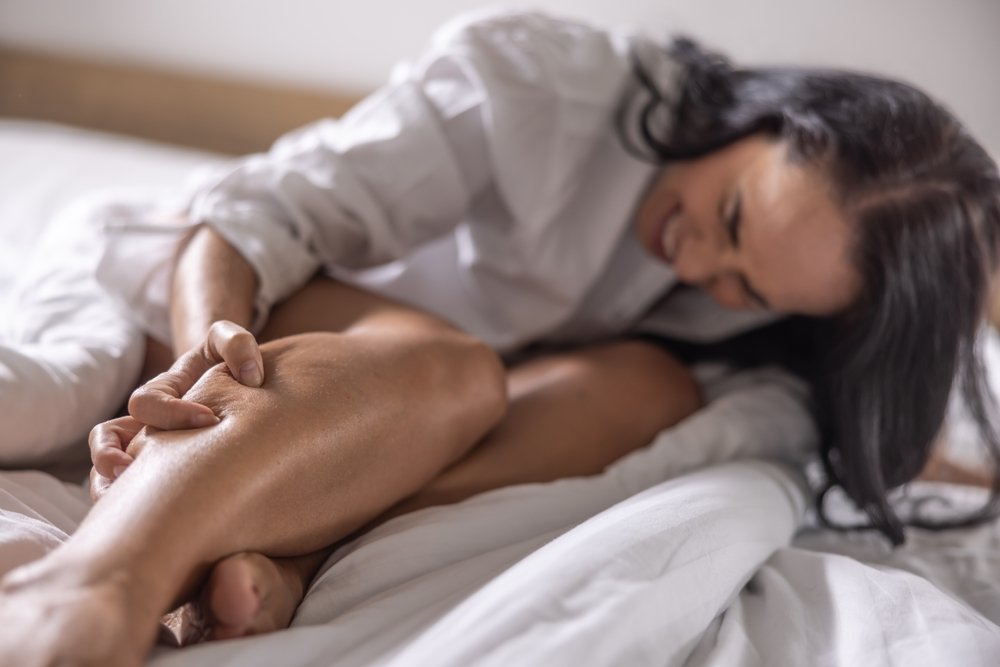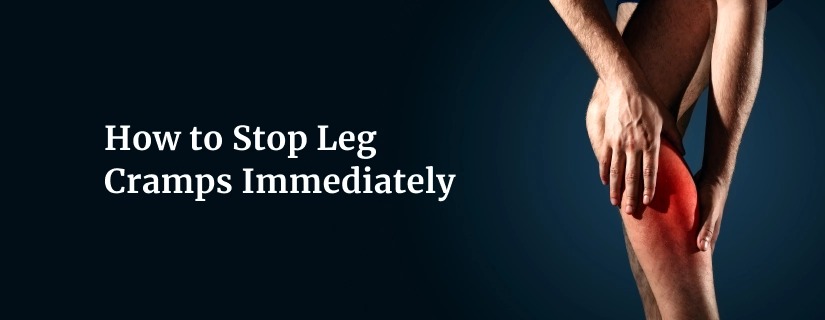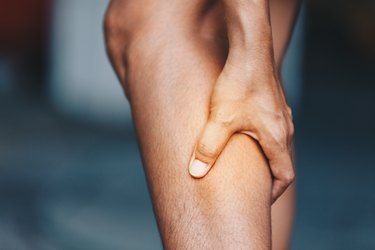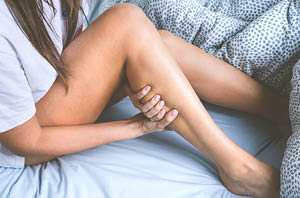Los calambres en las piernas, especialmente por la noche, pueden interrumpir el sueño con un dolor repentino y agudo. Si bien los calambres en las piernas son comunes y, por lo general, inofensivos, pueden afectar la calidad del sueño y el bienestar general. Aquí hay 10 remedios efectivos para ayudarlo a prevenir y aliviar los calambres en las piernas por la noche.
¿Qué son los calambres en las piernas?

Los calambres en las piernas son Contracciones musculares involuntarias que causan tensión y dolor repentinos, generalmente en la pantorrilla, el pie o el muslo. Pueden durar desde unos pocos segundos hasta varios minutos. Los calambres nocturnos en las piernas, o calambres en las piernas por la noche, son episodios que ocurren mientras descansa o duerme. Estos pueden despertarlo y hacer que se sienta adolorido. La mayoría de los casos de calambres en las piernas reportados ocurren por la noche.
Causas comunes de los calambres en las piernas por la noche
Varios factores pueden contribuir a los calambres en las piernas por la noche, entre ellos:
- Dehydration
- Electrolyte Imbalance (potassium, magnesium, calcium, and sodium deficiencies)
- Muscle Overuse or Fatigue
- Medications (like diuretics and statins)
- Pregnancy
- Medical Conditions (diabetes, kidney disease, thyroid issues)
- Age (older adults are more prone)
10 remedios para detener los calambres en las piernas por la noche

- Stay Hydrated
- Dehydration is a common cause of muscle cramps. Ensure you’re drinking enough water throughout the day to stay hydrated. Avoid alcohol close to bedtime, as it dehydrates the body and may contribute to cramping by causing nutrient deficiencies and muscle tissue damage.
- Stretch Before Bed
- Gentle stretching, especially of the calf muscles, before bedtime can help prevent cramps. One effective stretch is the calf stretch against a wall: Stand facing the wall with your hands pressed against it, and step one leg back, keeping it straight, while bending the front knee and holding the stretch for 30 seconds. Repeat with the other leg.
- Stretch During a Cramp
- If a cramp strikes at night, stretching the affected muscle can provide relief. For calf cramps, sit and pull your toes toward your head, or try a forward lunge to stretch the cramped leg. Standing on your toes for a few seconds may also help.
- Apply Heat
- Heat helps relax tight muscles. Use a heating pad, warm towel, or hot water bottle on the affected area. A warm bath or shower before bed can also soothe muscles and reduce the chance of nighttime cramps.
- Massage the Muscle
- When a cramp occurs, gently massage the muscle with both hands to ease the tension. This can help loosen the muscle quickly and reduce pain.
- Magnesium Supplements
- Magnesium deficiency may be linked to muscle cramps. Consult your doctor before taking supplements, but if approved, magnesium could help prevent cramps. Magnesium plays a key role in muscle contraction and nerve function.
- Eat Potassium-Rich Foods
- Ensure your diet includes enough potassium, as low potassium levels can contribute to cramps. Foods rich in potassium include bananas, oranges, and potatoes.
- Use Proper Bedding
- Tight-fitting sheets or blankets can restrict movement and contribute to cramps. Sleep under loose bedding to avoid compressing the muscles or nerves in your legs.
- Walk or Shake the Leg
- Walking or moving your leg when cramps occur can increase blood flow to the muscles and ease the cramp. Walking helps open up small arteries in the legs, which improves circulation.
- Avoid Prolonged Sitting or Standing
- Sitting or standing in one position for extended periods can increase the risk of cramps. Try to move regularly throughout the day to keep blood circulating and avoid muscle strain or tension.
Reflexiones finales

Los calambres nocturnos en las piernas pueden ser dolorosos y molestos, pero si te mantienes hidratado, mantienes una dieta equilibrada, te estiras regularmente y sigues estos sencillos remedios, puedes reducir la frecuencia y la intensidad de los calambres en las piernas. Si los calambres en las piernas persisten, consulte a un proveedor de atención médica para descartar cualquier afección médica subyacente.


